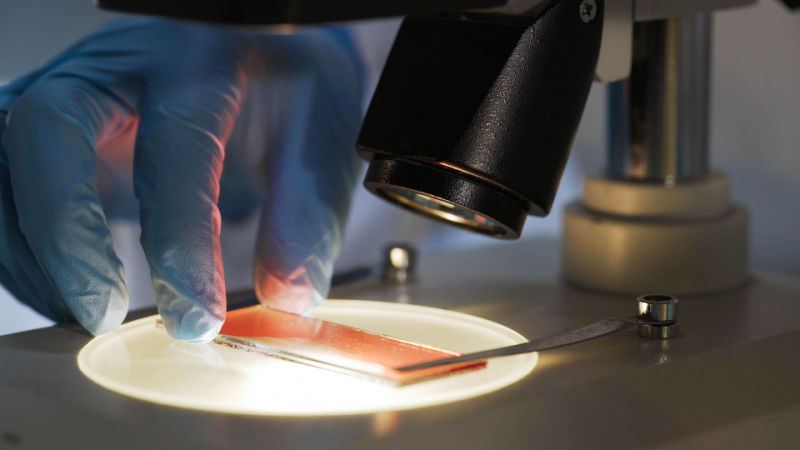The approval of CSL’s gene therapy Hemgenix has ushered in a new era for hemophilia B treatment. With the addition of other approvals like Rocktavian and Upstaza, 2022 could be a turning point for the broader gene therapy field.
Earlier this week, etranacogene dezaparvovec (Hemgenix) made history as the first gene therapy approved by the U.S. Food and Drug Administration (FDA) for the treatment of the rare genetic disorder hemophilia B. Patients with hemophilia B lack the ability to produce a vital clotting protein called factor IX (FIX), and must receive regular infusions of the protein to prevent uncontrolled bleeding.
Hemgenix was developed by CSL Behring in the U.S. and uniQure in the Netherlands. The gene therapy consists of a viral vector that carries a gene for FIX to the liver. The cells in the liver then produce FIX and increase the levels of the clotting protein in the blood.
“The FDA approval of Hemgenix for hemophilia B is by all standards a game changer,” said Fady Riad, CEO of the consulting firm Centurion Life Sciences. “As the first U.S.-approved gene therapy for hemophilia, it will most certainly serve as a regulatory blueprint for companies developing gene therapies in this space.”
Hemophilia B treatments: a long time coming
Gene therapies for hemophilia have been in development for decades. One of the biggest hopes came in 2020, when uniQure revealed promising phase 3 results for Hemgenix. By six months after receiving the gene therapy, the average FIX activity in hemophilia B patients had risen from less than 2% of what is considered normal to 37.2%, and the need for FIX replacement therapy dropped by 96%.
The potential for marketing the first gene therapy for hemophilia B attracted CSL Behring to uniQure’s candidate. In June 2020, CSL Behring sealed a licensing and commercial agreement with uniQure, worth $450 million upfront and up to $1.6 billion in milestone payments.
The partners’ hemophilia B program was hit with a clinical hold from the FDA in late 2020 when a patient developed liver cancer. However, the hold was lifted in April 2021 when uniQure had addressed all of the FDA’s safety questions.
The final readout of the phase 3 trial in February 2022 generated more excitement. By 18 months after dosing, 94 percent of the enrolled patients had discontinued use of prophylactic FIX infusions.
“Gene therapy for hemophilia has been on the horizon for more than two decades,” said Peter Marks, director of the FDA’s Center for Biologics Evaluation and Research, in a public statement regarding Hemgenix’s approval.
Marks added that the approval “provides a new treatment option for patients with hemophilia B and represents important progress in the development of innovative therapies for those experiencing a high burden of disease associated with this form of hemophilia.”

First mover advantages and challenges
CSL Behring and uniQure’s closest competitors are currently Spark Therapeutics and Pfizer, which are developing the hemophilia B gene therapy fidanacogene elaparvovec in phase 2 and phase 3 trials. While not a gene therapy, Sanofi’s once-monthly hemophilia B treatment fitusiran — made from small interfering RNA — met its goals in a phase 3 trial for hemophilia patients in July 2022.
Another major competitor would have been the U.K. firm Freeline Therapeutics. Freeline has promising early-stage clinical data for its own hemophilia B gene therapy, but this month decided to seek a partner before advancing the gene therapy into phase 3 trials.
However, being the first to market also poses some obstacles for CSL and uniQure, with one of them being the fact that gene therapy manufacturing is at an early stage.
“We are at the dawn of gene therapy, and there is obviously a learning curve in terms of manufacturing and supply chain,” said Riad. “Manufacturing will become leaner as processes become standardized but the main challenge that I see is that manufacturers are usually relying on a limited number of viral vector suppliers, which could lead to important bottlenecks.”
Another thorny issue for gene therapy developers is getting their product reimbursed. Gene therapies have been priced in the millions of dollars per dose and CSL is no exception. Upon the FDA approval, CSL priced Hemgenix at $3.5 million, making the hemophilia B treatment the most expensive drug ever. It will take a lot of negotiation to reach an agreement with reimbursers in many countries.
While the U.S. is often open to high drug prices, Riad explained that European payers are harder to convince. For example, bluebird bio failed to reach an agreement in Germany for its $1.8 million beta thalassemia gene therapy Zynteglo, and withdrew it from the EU in May 2021.
“Innovative payment models that involve rebates, direct contracting with payers, and installments is definitely something gene therapy manufacturers should consider as part of their market access strategy,” noted Riad.
Justifying Hemgenix’s huge price tag
The question remains whether Hemgenix is worth the asking price of $3.5 million. This is especially the case for rare diseases with small patient pools.
“Out of 25,000 male births in the U.S., ‘only’ one person will be born with hemophilia B, and biopharma companies need to recoup their R&D investment in order to continue innovating and developing life-changing and life-saving treatments,” said Riad.
Additionally, much of the pricing debate will depend on how long the gene therapy can be effective for.
“A 2021 study showed that the lifetime cost of hemophilia B management in the U.S. can exceed $20 million per patient,” added Riad. “Considering that Hemgenix is a one-time infusion, this could very well be a bargain for payers.”
According to a report from the U.S.-based Institute for Clinical and Economic Review (ICER) released in November, a fair price for Hemgenix would be between $2.93 million and $2.96 million. Unlike hemophilia A, a blood disorder that has other treatments available like Hemlibra, hemophilia B lacks effective treatment alternatives to Hemgenix. This could justify a higher price.
However, Riad explained that there is so far little data showing that Hemgenix can stay effective for longer than 18 months. Until more clinical data become available, CSL could face difficulties demonstrating its value for money.
A record year for gene therapy approvals
Hemgenix wasn’t the only gene therapy approved in 2022. Another notable milestone was the EU approval of the gene therapy valoctocogene roxaparvovec (Roctavian) for the treatment of hemophilia A. An FDA decision on Rocktavian — the first-ever approved gene therapy for hemophilia A — could follow in 2023.
Add to the list the FDA approval of bluebird bio’s Skysona and PTC Therapeutics’ Upstaza, and 2022 has seen a bumper crop of gene therapies for rare diseases. That’s not even counting in genetically modified CAR-T cell therapies, which are building up approvals in the oncology space.
“The first gene therapies to treat hemophilia A and B have now been approved this year in the EU and the U.S., respectively, adding to a record year for the approval of new gene therapies to treat rare diseases,” said Stephen Majors, senior director of public affairs for the Alliance for Regenerative Medicine.
The growing pace of gene therapy approvals is a sign of growing momentum for advanced therapies for rare diseases such as hemophilia. To maintain this momentum, cell and gene therapy developers must continue to tackle the many challenges holding back the field, such as manufacturing and safety issues.
“With the FDA and EMA projecting 10 to 20 cell and gene therapy approvals per year by 2025, we must ensure that we modernize our healthcare systems so that patients can access the advanced therapy medicinal products of today and tomorrow,” concluded Majors.





